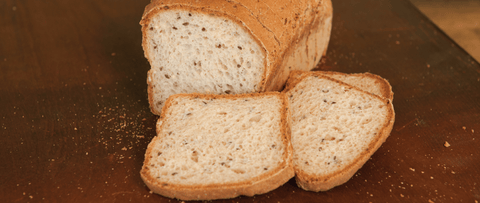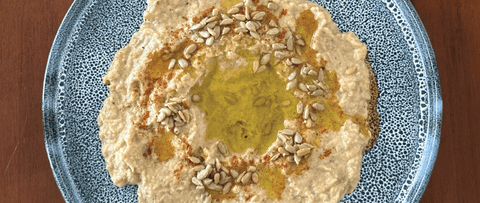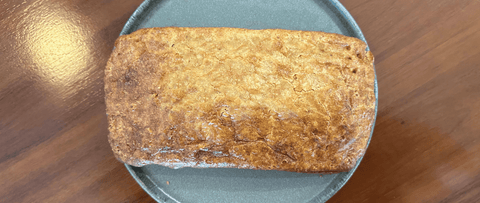At Julian Bakery, every one of our products is entirely gluten-free—not because gluten is inherently “bad,” but because we believe in reducing dietary inflammation and offering foods that fit modern health needs. To understand why more and more people are choosing gluten-free diets, let’s look at what the science actually says.
What is Gluten?
Gluten is a structural protein naturally found in grains such as wheat, barley, rye, and triticale. It provides dough with elasticity and structure, which is why it’s so valued in breadmaking.
For people with celiac disease—an autoimmune disorder affecting roughly 1% of the population —gluten triggers an immune reaction that damages the small intestine, impairing nutrient absorption.
Additionally, an estimated 6–7% of people may have non-celiac gluten sensitivity (NCGS), experiencing digestive discomfort, brain fog, or fatigue when consuming gluten.
Is Gluten Inflammatory?
For those with celiac disease or NCGS, gluten is clearly inflammatory. But even for those without a diagnosed condition, the way gluten-containing foods are processed today matters.
- Historically, breads were made with stone-milled, whole grains and fermented for long periods (sourdough), which broke down gluten and made them easier to digest.
- In contrast, modern wheat products are made from refined flours stripped of fiber and nutrients, then rapidly processed. These refined carbohydrates spike blood sugar, disrupt gut microbiota, and promote systemic inflammation.
So while gluten itself isn’t harmful to everyone, the ultra-processed grains most people consume today are far more inflammatory than traditional breads ever were.
Why Gluten-Free Diets Are Rising
Even people without celiac disease are adopting gluten-free diets. The most common reasons include:
- Digestive comfort – reduced bloating, gas, and stomach upset. • Lower inflammation – studies suggest that a gluten-free diet may reduce markers of inflammation in sensitive individuals.
- Improved energy – many report more stable energy levels without refined wheat products.
- Cleaner eating – gluten-free diets often overlap with a move away from heavily processed foods.
This isn’t about demonizing gluten, but about choosing foods that are less processed, more nutrient-dense, and easier to digest.
Common Gluten-Free Flours
Fortunately, removing gluten doesn’t mean giving up bread, baked goods, or your favorite recipes. Today, nutrition-forward alternatives are widely available, including:
- Almond flour – high in protein, vitamin E, and healthy fats.
- Coconut flour – rich in fiber and naturally low-carb.
- Cassava flour – grain-free, made from the whole root, with a neutral taste.
- Tapioca starch – adds chew and elasticity to gluten-free baked goods. • Rice flour – versatile and well-tolerated.
These flours not only replace gluten but often bring additional nutrients that refined wheat lacks.
The Julian Bakery Promise
We know the health science, and we live by it. That’s why every product we create—from our low-carb breads to our protein powders and Organic Seed Crackers—is:
- 100% gluten-free
- 100% grain-free
- Non-GMO
- Designed for clean nutrition
We believe food should support your body, not work against it. Our recipes are carefully crafted to be both nutritious and delicious, giving you the satisfaction of your favorite foods without the inflammation concerns of modern wheat products.
Final Thoughts…
Gluten isn’t inherently harmful for everyone—but the way modern flours are produced has made them more inflammatory than ever before. Choosing a gluten-free diet, especially one built on whole-food alternatives, can support better digestion, reduced inflammation, and overall wellness.
With Julian Bakery, you don’t have to choose between health and flavor—you can have both.



Comments (0)
There are no comments for this article. Be the first one to leave a message!